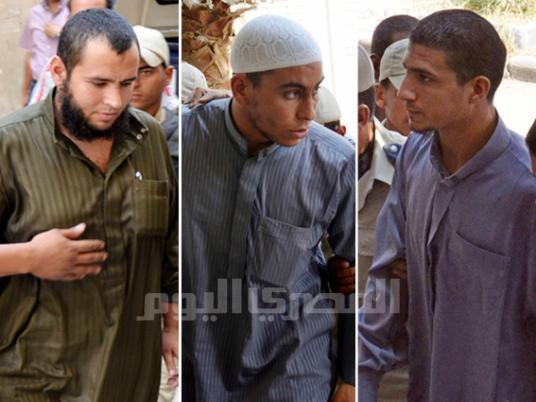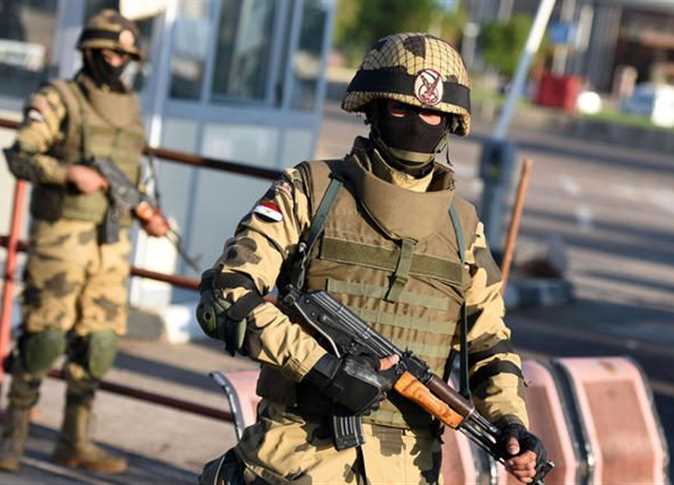
SUEZ — As the sun set over Suez’s corniche, couples and families started to arrive at the popular hangout. Couples sat on the bank of the canal, watching the sunset and chatting intimately, while others parked themselves in a nearby garden well-known as a local lovers’ lane.
The scene of canoodling couples by the canal was not quite what one might expect, two weeks after bearded assailants, apparently claiming to represent a self-styled version of Saudi Arabia’s Committee for the Promotion of Virtue and Prevention of Vice, stabbed to death a young man standing with his fiancée a few meters away.
Ahmed Hussein Eid’s murder on 25 June, along with unconfirmed reports of similar incidents around the country, have raised fears that extremist Islamists who feel emboldened by the election of an Islamist president will begin their own grassroots implementation of Sharia on the streets of Egypt — by violent means, if necessary.
But in Suez, where the flash-point incident took place, most people consider the murder either a plot to raise fears of President Mohamed Morsy, or an accident that was blown out of proportion. Either way, many say they plan to carry on with life as normal.
Like all the incidents attributed to the virtue police lately, Eid’s murder remains murky on the details. The story as told by the victim’s father, Hussein Eid, is based on his son’s fiancée’s account, which was corroborated by witnesses.
Eid said the three accused men approached the victim and his fiancée as they stood in Port Tawfiq, the urban center of Suez, on an unlicensed motorcycle. Walid Hussein allegedly yelled at the victim’s fiancée, “What are you doing here, girl?”
Hussein became violent when the victim came to his fiancée’s defense, Eid said, and when the victim shoved him in response. The second defendant, Antar Abdel Naby, then allegedly stabbed him in the inner thigh with a sharp object, cutting a vital vein.
“They say that they prevent vice. I’d like to know what vice my son committed to deserve this?” Eid said.
His son, a senior engineering student, died in an Ismailia hospital days later.
Three people were arrested 10 days after the murder. Hussein, Abdel Naby and Farouq Maaty are all known in Suez as religious figures who frequent the Al-Naby Moussa Mosque but have no known affiliations to any particular groups.
During the same week, two young musicians were killed in Sharqiya. The accident was initially reported as a second strike by the virtue police, but investigators said the murder was related to a family feud.
With the hype around these two incidents, unconfirmed reports of unveiled girls being harassed and attacked by bearded men circulated quickly through social media. Some papers concluded that organized virtue police squads existed, and started to frame the incidents as repeated strikes by the same group.
State-run newspaper Rose al-Youssef published a compilation of alleged assaults on citizens by bearded men around the country on its front page on 10 July, accompanied by the headline: “After Suez, the attack on Ismailia and Beni Suef.”
But Amr Ezzat, a researcher for the Egyptian Initiative for Personal Rights who investigated the phenomenon, said the fear of an emerging virtue police in Egypt is based more on rumors than facts.
“So far there is no proof of an organized effort or a significant phenomenon, only separate incidents that some people have tied together,” Ezzat said. And there has been no increase in this behavior in recent months, he added.
Following the Suez murder, a Facebook group called “The Authority for the Promotion of Virtue and Prevention of Vice in Egypt,” taking after the Saudi virtue police, posted a statement taking responsibility for the killing.
“We asked the young man for proof of his official relationship to this girl and he showed us a silver ring, which didn’t prove anything. This convinced the members of the group that they have to apply the rule of promotion of virtue and prevention of vice on this man, who was standing with a woman who was a stranger to him in a late hour at night.
“A member of the group pulled out a light bamboo stick with which he intended to give the man a light, harmless strike. Then he yelled at him and advised him not to repeat this violations of God’s law and his orders,” the statement said.
The statement said that after the man raised his voice and mocked the members’ Islamic garb, the virtue police were “obliged” to stab him in the foot. Shortly after posting the statement, the group was removed from Facebook. The authenticity of the group was never established.
Almost everyone in Suez, a city dominated by Islamists, has their own theories regarding the incident. “Why would a religious person walk around with a knife? And why did this happen right after Morsy won?” said Abir Hassan, who lives a few meters from where Eid was stabbed. “This is all meant to target his presidency.”
The victim’s father also feels there is something bigger behind the incident, adding that the precision of the cut, which hit a vital vein, shows it was made by a professional. He is demanding that investigators reveal who is really behind it.
But Sheikh Anas al-Hady, a prominent preacher in Suez and the former imam of Al-Naby Moussa Mosque, said the idea of virtue police was a fabrication. He does not deny that Islamic preachers in Suez advise people in the street to abide by Islamic law but he says they do it gently.
“They saw the guy doing bad things to the girl. Any Muslim who cares about his religion would speak up, but then the guy pulled out a cutter and a normal fight erupted,” said Hady.
In Ganayen, where Hussein lives, residents paint an image of him as Sheikh Walid, a revered preacher and well-respected figure in the area, and said they were shocked at the news. They conceded that Walid would often instruct girls to cover their hair and encourage people to pray, but they saw it as a positive thing.
“It makes me happy to see that my neighbor is protecting my sister or my daughter,” said Mohamed Hassan, a neighbor of the defendant’s. Um Mostafa started to tear up at the thought of Hussein’s arrest. She spoke with gratitude about his attempts to convince her to wear the face veil.
“I have cried so much for Walid. He has brought up my kids and has been offering to buy the niqab for me and my daughter so that we represent the best picture of Islam. That is the way we should be,” she said.
This piece was originally published in Egypt Independent's weekly print edition.




